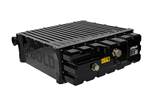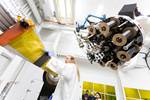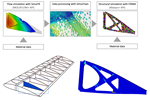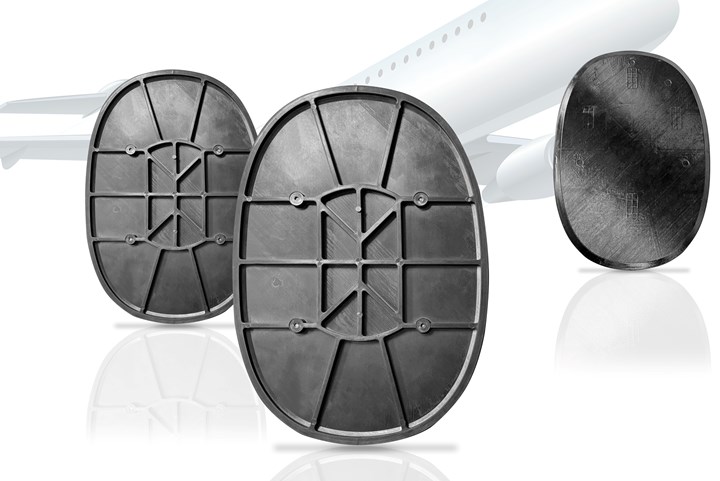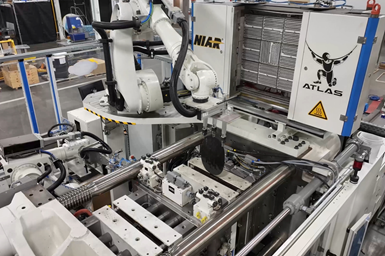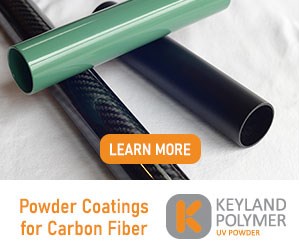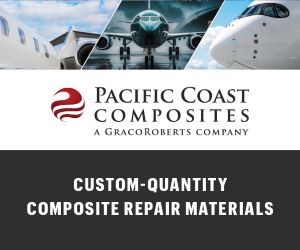NIAR, KraussMaffei cooperation enables efficient aerospace aircraft conversion
Incorporation of FiberForm advances NIAR ability to convert metallic components to fiber-reinforced thermoplastic versions in cargo aircraft.
KraussMaffei (Parsdorf, Germany) highlights how its cooperation with the National Institute for Aviation Research (NIAR) at Wichita State University has enhanced the efficiency of the conversion of passenger aircraft into cargo planes — from the use of metal to fiber-reinforced composites. NIAR is known for investigating how modern composite technologies can be safely and efficiently used in aviation.
Among many other tasks, passenger to cargo conversions require replacing acrylic window plugs with metallic alternatives for ease of maintenance. This costly and time-consuming metallic solution can be further optimized by fiber-reinforced thermoplastic composites that offer the same stability at lower costs, less weight and in a fraction of the time it would take to machine the metallic part. NIAR and KraussMaffei have been combining know-how for the development of a lightweight solution using the latter’s FiberForm technology. With FiberForm, a fully consolidated, fiber-reinforced thermoplastic sheet (organosheet) is inserted into the mold, formed and overmolded with a thermoplastic polymer.
In the case of the window plugs, this is performed on a GXW 450-2000/1400 with a swivel platen. The window plug was designed with the oval-shaped geometry of the original with appropriate design modifications, adding ribs to stiffen it to withstand pressure loads. In order to achieve the desired mechanical properties, NIAR’s Dr. Waruna Seneviratne and KraussMaffei’s Eugen Schubert used LM-PAEK reinforced with AS4 carbon fibers for the 16-ply organosheet and 30% chopped fiber-filled PEEK for overmolding the ribs.
FiberForm is also cited for its short cycle time — injection molding tends to be faster compared to metal machining. For example, 40 window closures can be produced within an hour. In addition, thermoplastics use offers the ability to weld components, in addition to imparting high impact strength, resistance to high temperatures, chemical and environmental influences and flame-retardant properties.
For example, compared to its metal counterpart (590 grams), the composite overmolded window plugs produced by NIAR weighs 20% less, and the team is already working on further optimizing the structure to make it about 40% lighter. NIAR’s next step is to subject the window plugs to further functional tests required for certification — with regard to durability — so that it is ready for series production.
NIAR and KraussMaffei have been partnering successfully for 2 years. “KraussMaffei has not only set up a machine with multiple capabilities, but has also been actively helping us on-site with process development,” says NIAR’s Seneviratne. “Our students also gain a tremendous amount of hands-on experience and get to interact with the supply chain for several new capabilities we introduced in recent years. Our goal is to transfer the efficient processes such as FiberForm from automotive production to aviation.”
Related Content
-
Sulapac introduces Sulapac Flow 1.7 to replace PLA, ABS and PP in FDM, FGF
Available as filament and granules for extrusion, new wood composite matches properties yet is compostable, eliminates microplastics and reduces carbon footprint.
-
Carbon fiber in pressure vessels for hydrogen
The emerging H2 economy drives tank development for aircraft, ships and gas transport.
-
PEEK vs. PEKK vs. PAEK and continuous compression molding
Suppliers of thermoplastics and carbon fiber chime in regarding PEEK vs. PEKK, and now PAEK, as well as in-situ consolidation — the supply chain for thermoplastic tape composites continues to evolve.


